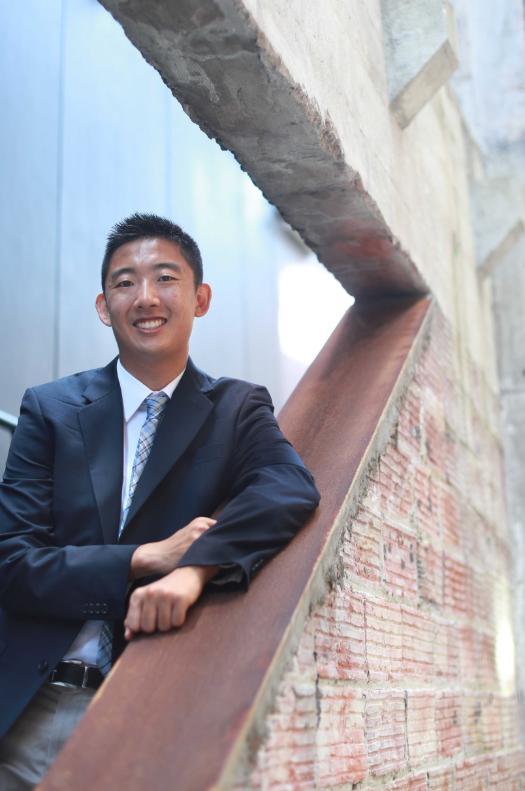Embracing Change and Building a Pipeline of Support for Seattle U Graduates
Posted by The Seattle University Alumni Association on Wednesday, January 6, 2021 at 2:04 PM PST
 Like many first-time college students, Alan Yu, ’17, started on the track towards one major before realizing his passion was elsewhere. After taking classes at another university, he decided that he wanted to change his initial plan of studying bioengineering to computer science. “I realized I was absolutely miserable, and I wasn’t pursuing my passion,” said Yu.
Like many first-time college students, Alan Yu, ’17, started on the track towards one major before realizing his passion was elsewhere. After taking classes at another university, he decided that he wanted to change his initial plan of studying bioengineering to computer science. “I realized I was absolutely miserable, and I wasn’t pursuing my passion,” said Yu.
But, as it sometimes works out, changing between two competitive fields of study is not an easy process. After a lot of reflection, soul searching and connecting with viewers on his Twitch channel, Yu decided to transfer to Seattle University to start his new major.
Despite having to complete an additional year of classes, Yu feels his experiences at SU truly prepared him for his current role at Microsoft. “I took many humanities courses (UCOR) like philosophy, ethics, social justice and women studies. My UCOR courses really helped me shine by becoming a strong communicator, by building the skills to empathize with people from diverse backgrounds, and by understanding what is important by prioritizing people over processes,” he said.
Much like his educational journey, his professional path started out in one direction and took a turn toward another. When Yu arrived at Seattle U, he knew he needed to get an internship in order to gain experience in computer science “I applied to 100 companies over five months and only got 7 interviews. I ended up taking an internship at Weyerhaeuser as a software developer. After my internship, I realized that as much as I liked problem solving and coding was fun, what I really valued was working with people and building a product vision.”
In his next round of internship applications, Yu applied to 50 companies and got 20 interviews. One of those companies was Microsoft. He interviewed and ended up impressing the hiring manager with his product management (PM) skills. After completing his PM internship, he fell in love with the role. “As a PM you get to ask questions while keeping customers and partners at the forefront: What are we building? Why are we building this product? Then, you get to work with a diverse team of experts to make it happen. I feel really lucky to somehow get this position at Microsoft, so I try to give back as much as I can,” said Yu.
Yu gives back and stays engaged with Seattle U in many different ways. He regularly speaks about his journey through failure to senior computer science classes over the last 3 years and collaborates with SeattleU faculty and staff. “As a recent graduate, I can still relate to early career struggles, and I think it’s important to share perspective on what is actually important when starting out in a career. It’s easy to focus on getting a good GPA or comparing yourself to other students, when really it’s about your personal growth and learning to collaborate and communicate with others.”
As a natural connector and speaker, Yu is excited about starting a Microsoft Seattle U alumni community to help other people stay connected and provide a platform for others at Microsoft to partner with Seattle U. “My goal is to create a supportive community of people who want to give back to students. Whether it is a capstone project idea, a faculty member looking for a guest speaker or lecturer, or someone that wants to donate time or money, I want them to have a community to collaborate with so that we can make a stronger impact together.”
Yu is currently the chair for the Korean Diversity Board, a board member for the Asian Employee Resource Group across Microsoft, serves on the planning committee for the new employee orientation, participates in the Microsoft intern program, and works as a PM teacher with the Microsoft LEAP Engineering Apprenticeship program to help build a pipeline of non-traditional, veteran or minority groups to gain the skills to be prepared to work at Microsoft. “I know how to start a group from nothing and build a foundation for a community. I have been building or been a part of communities my whole life, and I want to use this opportunity to bring our community together.”
Students are looking for a real perspective. They need mentors and coaches in the community who want to help but don’t know how. If you ever wonder how to get started with helping local schools, Alan suggests “Reach out to your department. You will be surprised how many people are looking for guest speakers,” said Yu. Whether mentoring students or speaking at events, your time and expertise ensures current students are inspired, equipped and connected.
Volunteer your time to guest lecture or serve on the computer science advisory board or join one of our 23 alumni communities today!
